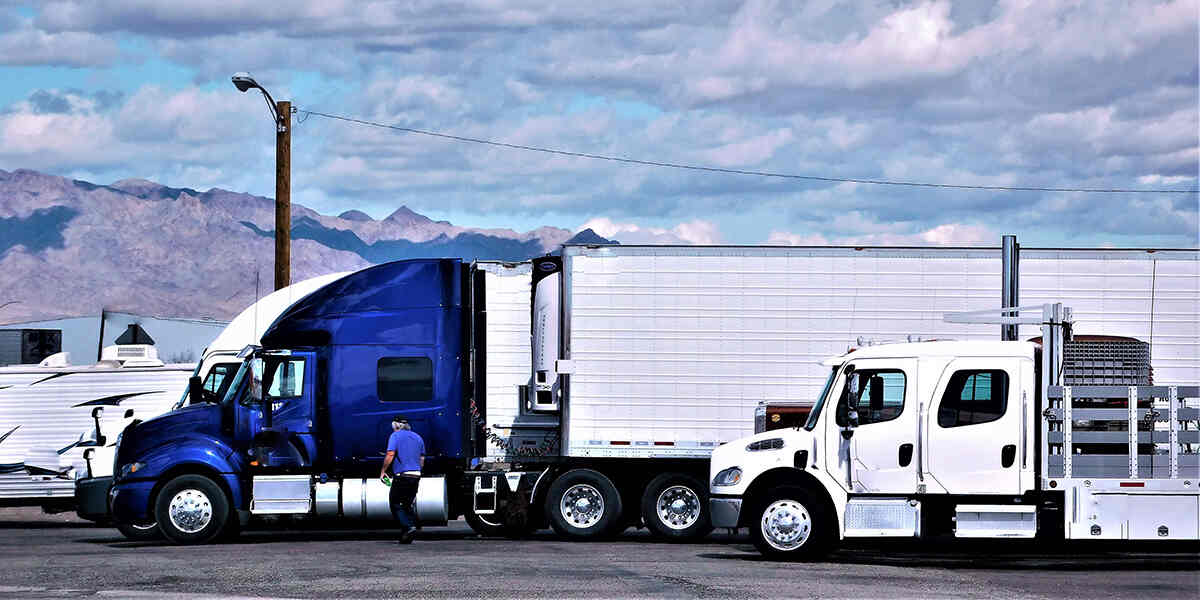What Vehicles Need to Be Registered for UCR?

You and other truckers are likely familiar with the United Carrier Registration. But what vehicles need to be registered for UCR? And what other details should you know about?
Federal Motor Carrier Authority Filings updates you and other members about these integral topics while helping you comply with shifting industry requirements. We explore UCR mandates for different vehicles below.
A Brief Overview of Unified Carrier Registration
The UCR is a program that helps states raise money for interstate infrastructure. It ensures involved parties, such as commercial vehicle operators, pay their fair share to maintain safe interstate roadways. However, not all vehicles that use interstates have to register. Plus, some registered entities are not always vehicles.
What Vehicles Need to Be Registered for UCR?
Which vehicles should have a UCR registry? Almost any commercial motor vehicle (CMV) should register. A CMV may transport goods, materials, or passengers on highways. Some examples of CMVs include:
- For-hire passenger motor carriers: If you drive buses that don’t transport people for profit, you might be exempt from UCR requirements. However, other passenger transportation that uses roadways and makes money from the passengers must register when transporting more than 10 passengers.
- Motor vehicles that transport property: UCR applies to semi-trucks and other heavy-duty transportation that hauls materials, goods, and shipping products across state lines.
- Hazardous material transporters: Hazardous materials might include flammable or toxic substances. Not only are these vehicles subject to UCR, but they must meet other strict qualifications.
Generally, transportation agencies consider vehicles that weigh above 10,000 pounds as commercial motor vehicles.
Who Else Should Register for UCR?
Vehicles that meet the above qualifications aren’t the only entities that need a UCR. Many companies and people within the transportation industry must also register whether or not they operate a CMV. Some examples include:
- Freight forwarders: A freight forwarder handles cargo logistics and transportation arrangements between the carrier and supplier. Their essential role in consolidating loads and coordinating shipments means they play a part in how truckers use highways and interstates.
- Leasing companies: Some people specialize in leasing or renting out CMVs to independent drivers or companies. While these entities do not hire drivers, they do influence the commercial traffic that travels across state lines or uses interstates.
- Private carriers: Sometimes, the driver and carrier are one and the same. These operators essentially freelance, carrying cargo for independent hire. Since private carriers contribute to interstate traffic, they, too, must register.
- Brokers: While forwarders specialize in outgoing shipments, freight brokers handle incoming ones. Like forwarders, they don’t typically drive cargo from state to state. However, they do contribute to highway usage for commercial purposes.
As you likely inferred, knowing what vehicles need to be registered for UCR is only half of the equation. You’ll find more registration specifics discussed below.
How Often Must I Register?
UCR works like many permits and compliance requirements. You have to register annually and pay a fee to acquire your registration. The program opens registration at the beginning of October most years. You must complete the process by the end of the year to retain your position in the following year’s registry.
Where Do UCR Fees Go?
URC fees go toward highway and interstate maintenance and safety. It works sort of like a tax for commercial entities that use these infrastructures in any way. The specific uses might vary by state.
Do I Get UCR Proof?
You don’t need physical proof of your registration. If you already have a USDOT number assigned to your vehicle or business entity, you’ll find your UCR proof alongside that number. DOT officers will see your registration if they look up your number. Therefore, you won’t receive a sticker, paper slip, or other documents.
How Do Trucking Agencies Know About My UCR Filings?
Any industry party with whom you work, including forwarders, brokers, and carriers, can look up your DOT number to find your registration. It is publicly available on trucking authority websites. Access to the information isn’t limited to DOT officials and other authority representatives.
What Happens If I Forget to Register?
If you fail to register for any reason, you might get pulled over by a safety officer. The officer can confirm your lack of UCR and may:
- Detain your vehicle
- Audit you or your transportation entity
- Confiscate other vehicles you own
- Dole out financial and operational penalties
Your new UCR activates on January 1st. Make sure you complete registration well before then.
FMCA Filings Offers Compliance and Peace of Mind
Now that you know what vehicles need to be registered for UCR, learn more about the purpose of UCR. You can also sign up for the FMCA Filings portal to keep your documents and registrations in one place. Start here by applying for the permits you need right now.